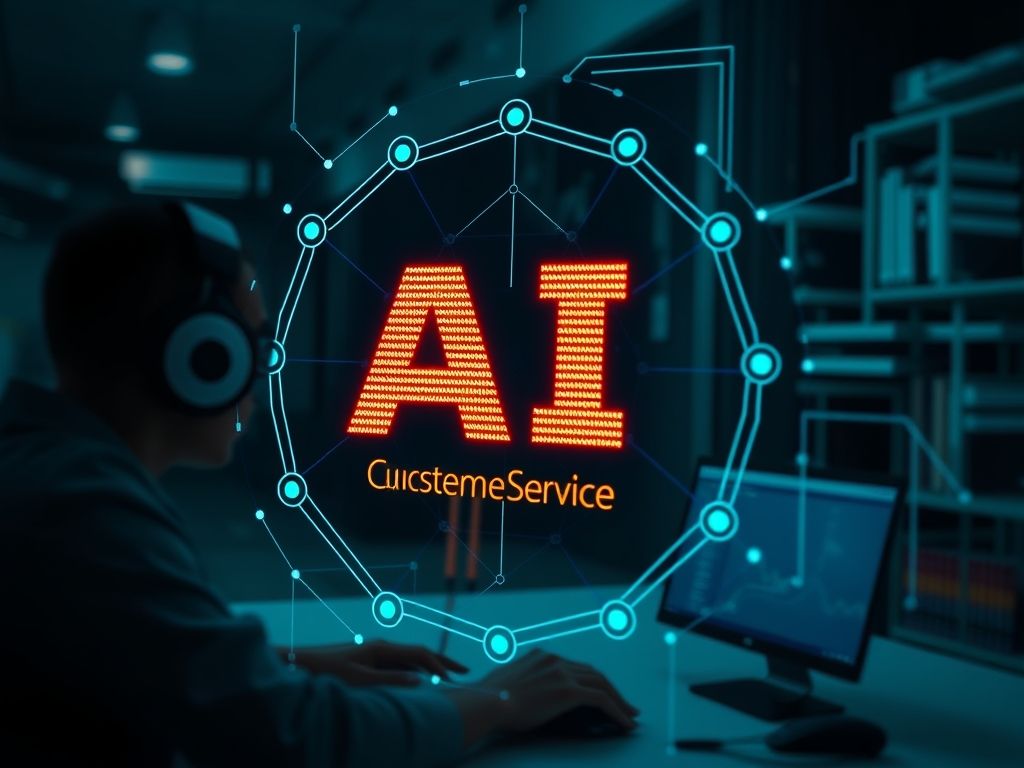Understanding AI for Customer Service
AI for Customer Service refers to the integration of artificial intelligence technologies into customer service operations to enhance user experiences, automate responses, and streamline support processes. This sophisticated approach allows businesses to respond to customer inquiries quickly and accurately, reducing wait times and improving overall satisfaction.
By leveraging AI, companies can analyze vast amounts of data from customer interactions, identify patterns, and predict future needs, which ultimately leads to a more personalized and efficient service. The role of AI in customer service is becoming increasingly vital as businesses strive to meet the rising expectations of consumers in a digital-first world.
Key Components of AI in Customer Service
To fully grasp the impact of AI for Customer Service, it’s essential to understand its key components. These include:
- Chatbots: Automated tools that simulate human conversation, providing instant support to customers through text or voice interactions.
- Natural Language Processing (NLP): A branch of AI that enables machines to understand and interpret human language, allowing for more effective communication between customers and AI systems.
- Machine Learning: Algorithms that enable systems to learn from data over time, improving their responses and predictions based on previous interactions.
- Sentiment Analysis: The process of analyzing customer feedback and interactions to gauge emotions and satisfaction levels, helping businesses tailor their services accordingly.
Real-World Applications of AI for Customer Service
Implementing AI in customer service can lead to significant improvements in various sectors. Here are some notable examples:
1. E-commerce Industry
Many online retailers utilize AI chatbots to assist customers with product inquiries, order tracking, and returns. For instance, a major online retailer implemented a chatbot that reduced response times by 70%, leading to higher customer satisfaction rates.
2. Financial Services
Banking institutions employ AI-driven virtual assistants to help clients manage their accounts and answer frequently asked questions. This approach not only enhances customer engagement but also frees up human agents to focus on more complex issues.
3. Telecommunications
Telecom companies often use AI to streamline customer support, allowing users to troubleshoot issues through interactive voice response (IVR) systems. This automation has significantly decreased call handling times and increased first-call resolution rates.
4. Travel and Hospitality
Airlines and hotels leverage AI-powered chatbots to assist travelers in booking flights, managing reservations, and providing real-time updates on travel conditions, improving the overall customer experience.
How to Implement AI for Customer Service in Your Business
Integrating AI into customer service requires careful planning and execution. Here’s a practical guide to get started:
- Assess Your Needs: Evaluate your current customer service processes to identify areas where AI can enhance efficiency and customer satisfaction.
- Choose the Right Tools: Select AI tools that align with your business goals, such as chatbots, NLP systems, or sentiment analysis software.
- Train Your Team: Ensure that your staff is well-trained in utilizing AI tools and understands how to complement them with human interaction.
- Monitor and Optimize: Continuously track the performance of your AI systems and gather customer feedback to make necessary adjustments for improvement.
Challenges and Considerations in AI for Customer Service
While AI for Customer Service offers numerous benefits, there are challenges that businesses must navigate:
- Data Privacy: As AI systems collect and analyze customer data, ensuring compliance with data protection regulations is crucial.
- Integration: Integrating AI with existing customer service platforms can be complex and may require significant resources.
- Human Touch: Balancing automation with personal interaction is essential to maintaining customer relationships and satisfaction.
Related Concepts in AI and Customer Experience
Understanding AI for Customer Service also involves recognizing its relationship with other concepts, such as:
- Customer Relationship Management (CRM): AI tools can integrate with CRM systems to provide personalized customer insights and streamline interactions.
- Omnichannel Support: AI enhances the ability to provide consistent support across various channels, including social media, chat, and email.
- Predictive Analytics: Using AI to predict customer behavior and preferences can significantly enhance service personalization.
Conclusion: Embracing AI for Enhanced Customer Service
AI for Customer Service is not just a trend; it’s a transformative approach that can significantly enhance how businesses interact with their customers. By implementing AI tools effectively, organizations can improve efficiency, reduce costs, and provide a more personalized experience that meets the evolving demands of customers.
As you explore the potential of AI in your customer service strategy, consider how these technologies can be tailored to your unique business needs. The future of customer service is here, and embracing AI is key to staying competitive and delivering exceptional value to your clients.
Reflect on how you can incorporate AI into your customer service strategy today. What tools or processes can you improve to better serve your customers?









